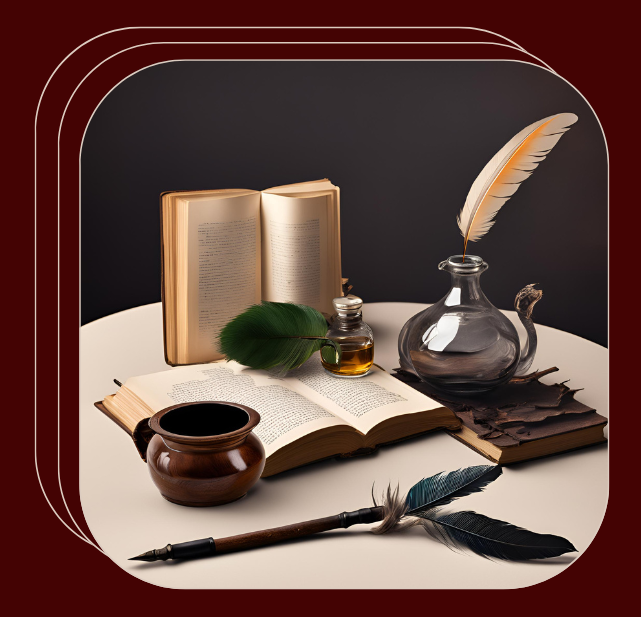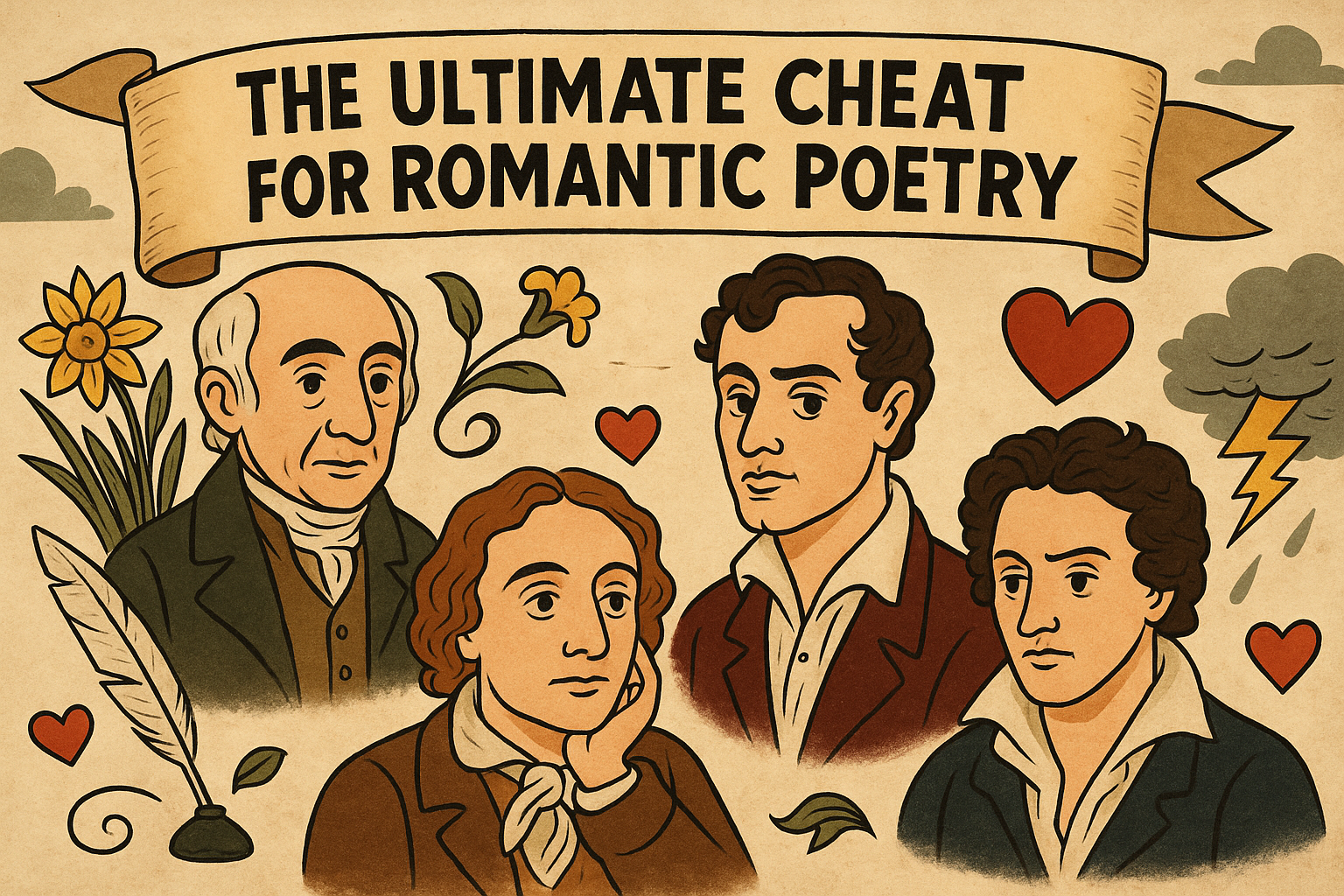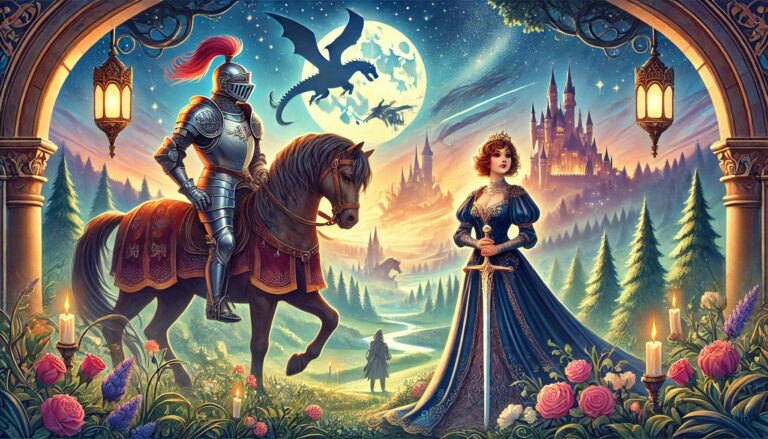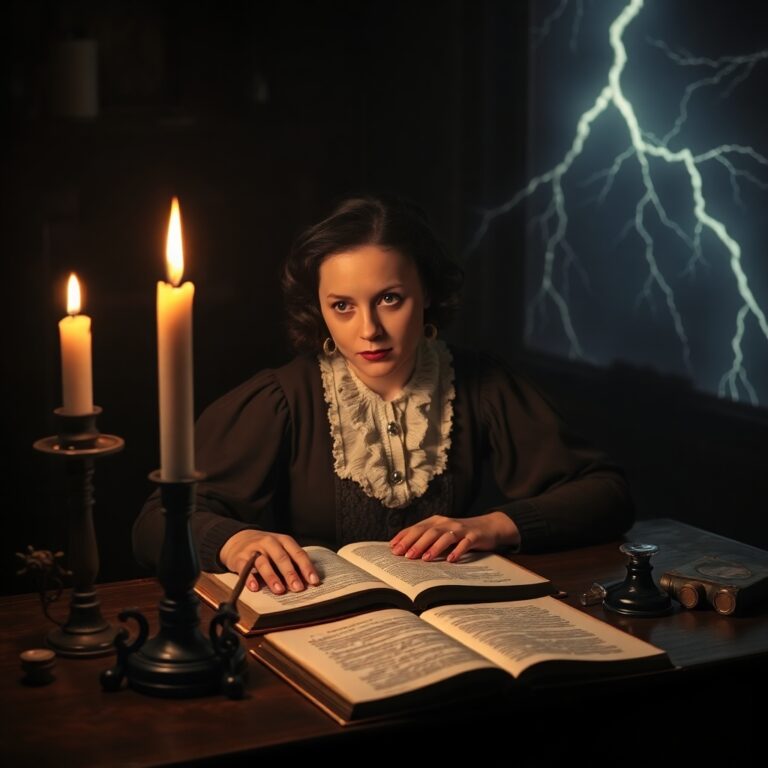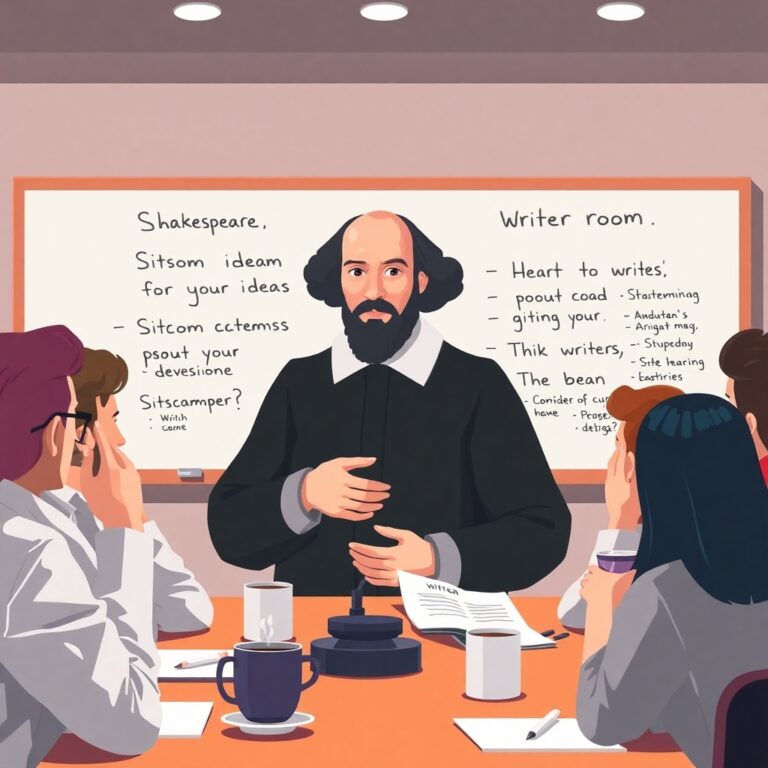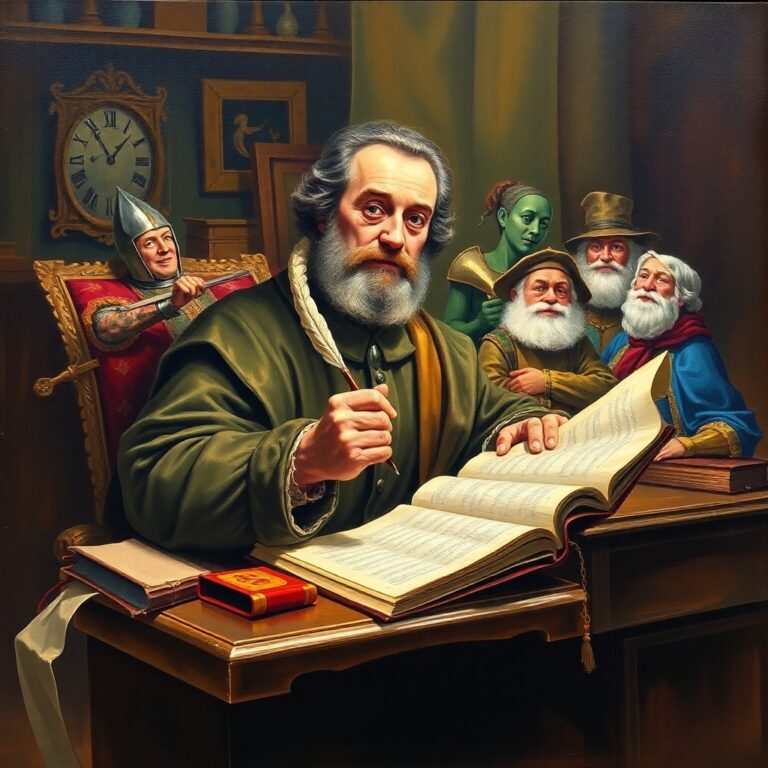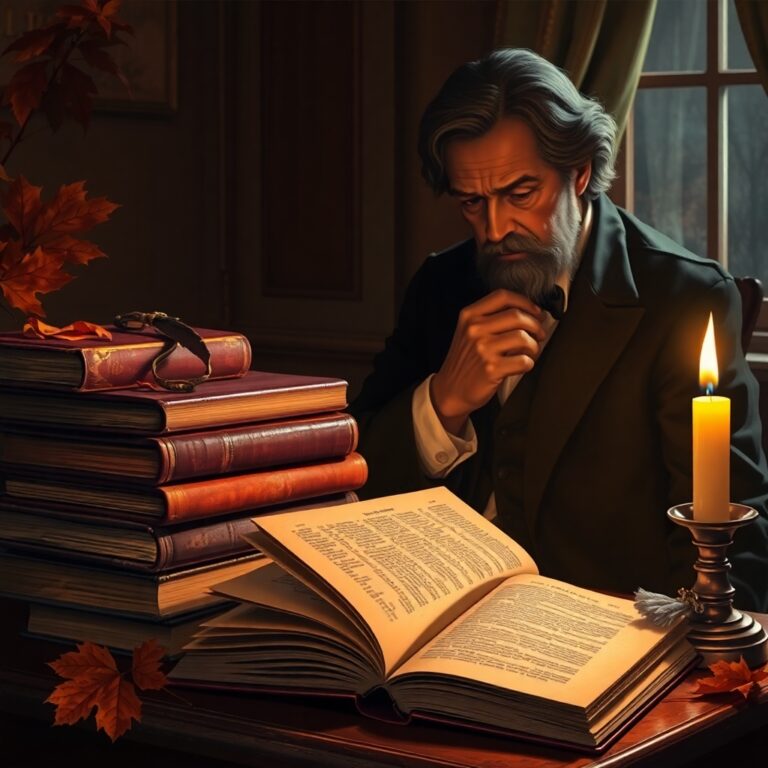The Ultimate Cheat Sheet for Romantic Poetry: Key Poets, Themes & Quick Laughs
Need a crash course on Romantic poetry? Here’s a hilarious yet insightful cheat sheet on key poets, themes, and everything you pretend to know for English Literature class.
Introduction: Why Romantic Poetry is Just a Vibe
Let’s be honest: Romantic poetry sounds dreamy, but actually reading it sometimes feels like decoding ancient emotional Facebook statuses.
Fear not, weary scholar — here’s your Ultimate Cheat Sheet for Romantic Poetry: all the must-know poets, major themes, and a few spicy hot takes to impress your English professor (or your book club).
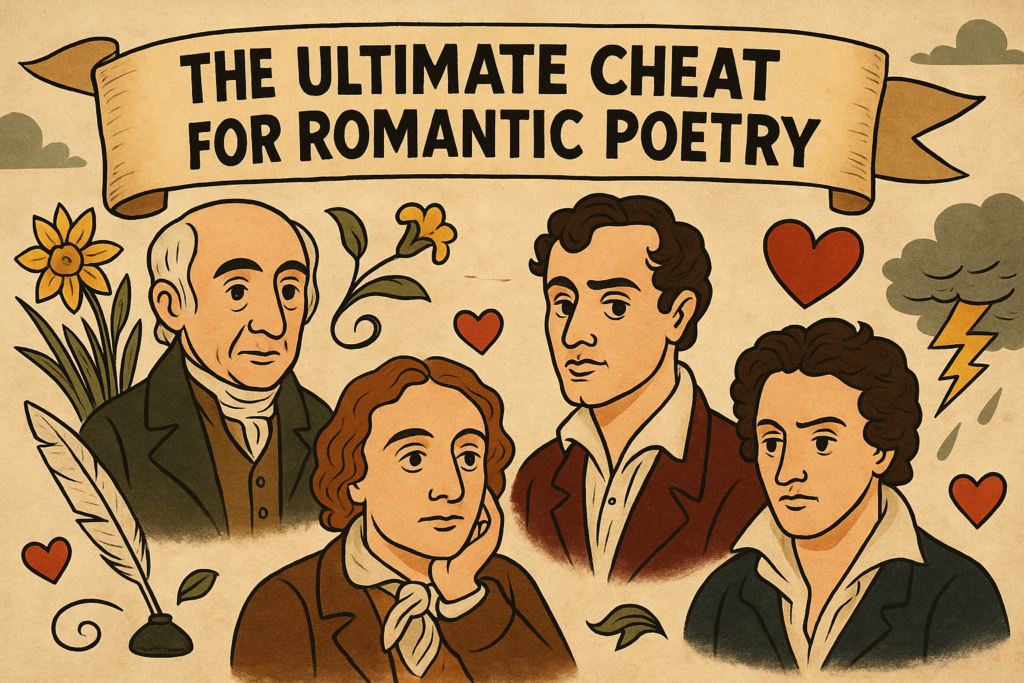
Meet the Romantic Dream Team (or Drama Queens)
1. William Wordsworth – Nature’s #1 Fanboy
Key Move:
Staring at daffodils and having spiritual awakenings in the woods.
Fun Fact:
Wordsworth wrote The Prelude, a 13-book autobiography about how awesome it is to walk around in nature. It’s basically the 19th-century version of a hiking blog.
Must-Quote:
“Poetry is the spontaneous overflow of powerful feelings.”
(Translation: Cry first, edit later.)
2. Samuel Taylor Coleridge – That One Friend Who’s Into Weird Stuff
Key Move:
Writing trippy epics about zombie sailors (The Rime of the Ancient Mariner) and drug-fueled visions (Kubla Khan).
Fun Fact:
He legit blamed the ending of Kubla Khan on someone rudely knocking at his door mid-writing session. Relatable.
Must-Quote:
“Water, water everywhere, nor any drop to drink.”
(Modern equivalent: Opening the fridge 10 times and still finding nothing.)
3. Lord Byron – The Original Hot Mess
Key Move:
Sleeping with everyone in Europe while writing smoldering poetry.
Fun Fact:
Byron was so scandalous he had to leave Britain to avoid the gossip police. Think of him as literature’s first Bad Boy with a Blog.
Must-Quote:
“She walks in beauty, like the night.”
(Smooth. Steal it for your next Tinder bio.)
4. Percy Bysshe Shelley – The Guy Who Had Too Many Feelings, Too Loudly
Key Move:
Raging against authority while penning heartbreaking odes.
Fun Fact:
Shelley got kicked out of Oxford for publishing an essay called The Necessity of Atheism. He basically invented “getting canceled.”
Must-Quote:
“Look on my Works, ye Mighty, and despair!”
(Ozymandias is the ultimate clapback to anyone who thinks their empire will last forever.)
5. John Keats – Soft Boy Supreme
Key Move:
Writing soul-crushing odes about beauty, death, and how unfair it is to be mortal.
Fun Fact:
Keats died tragically young (at 25) but still managed to become a poetry legend. Proof you don’t need a 40-year career to make history.
Must-Quote:
“A thing of beauty is a joy forever.”
(Also what you say when you find the perfect slice of pizza.)
Conclusion: Go Forth and Romanticize Your Life
There you have it: a cheat sheet that’ll save you from faking a British accent while desperately bluffing about Kubla Khan. Romantic poets were intense, dramatic, and deeply emotional — and now, thanks to this guide, so are you (at least for your next essay).
Romantic Poetry Themes You Should Pretend You Always Knew
- Nature is basically God:
Romantics weren’t just hiking for the ‘Gram — they genuinely believed nature held divine truths. - Emotions > Logic:
If it doesn’t make you sob into your journal, is it even Romanticism? - The Sublime:
That feeling when you’re looking at a mountain and it’s so beautiful you think you might explode. No big deal. - Rebellion:
Romantics loved sticking it to The Man — monarchy, church, industrial society, you name it. - Mortality:
Death wasn’t just inevitable; it was poetry’s favorite playlist. - Imagination is Power:
Reality is boring. Imagination is where the real action happens — dragons, visions, heartbreak, you name it.
Quick Survival Tips for Discussing Romantic Poetry
- Say “the interplay between man and nature” at least once.
- Use “the sublime” and “transcendental” casually, like you actually know what they mean.
- Dramatically sigh when quoting Keats. Extra points if you look into the middle distance.
References
- Wu, Duncan (ed.). Romanticism: An Anthology. Wiley-Blackwell, 2012.
- Curran, Stuart. The Cambridge Companion to British Romanticism. Cambridge University Press, 1993.
- Bloom, Harold. The Visionary Company: A Reading of English Romantic Poetry. Cornell University Press, 1971.
